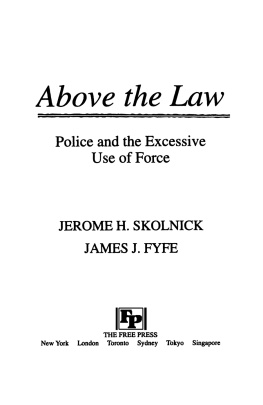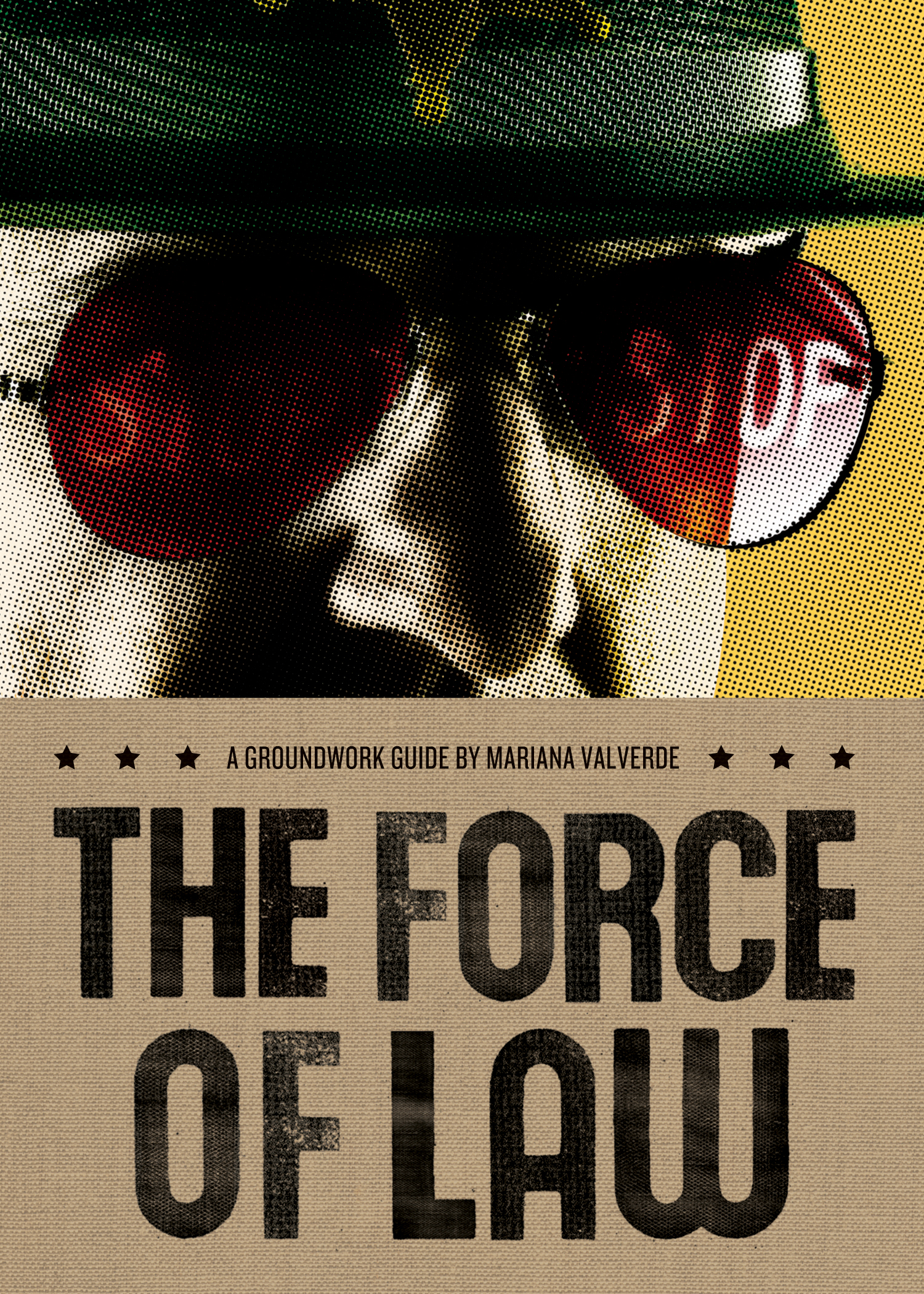Mariana Valverde - The Force of Law: A Groundwork Guide
Here you can read online Mariana Valverde - The Force of Law: A Groundwork Guide full text of the book (entire story) in english for free. Download pdf and epub, get meaning, cover and reviews about this ebook. year: 2010, publisher: Groundwood Books Ltd, genre: Politics. Description of the work, (preface) as well as reviews are available. Best literature library LitArk.com created for fans of good reading and offers a wide selection of genres:
Romance novel
Science fiction
Adventure
Detective
Science
History
Home and family
Prose
Art
Politics
Computer
Non-fiction
Religion
Business
Children
Humor
Choose a favorite category and find really read worthwhile books. Enjoy immersion in the world of imagination, feel the emotions of the characters or learn something new for yourself, make an fascinating discovery.

- Book:The Force of Law: A Groundwork Guide
- Author:
- Publisher:Groundwood Books Ltd
- Genre:
- Year:2010
- Rating:5 / 5
- Favourites:Add to favourites
- Your mark:
The Force of Law: A Groundwork Guide: summary, description and annotation
We offer to read an annotation, description, summary or preface (depends on what the author of the book "The Force of Law: A Groundwork Guide" wrote himself). If you haven't found the necessary information about the book — write in the comments, we will try to find it.
This book examines the meaning of law from a global perspective and the many connections between law and law enforcement. An excellent introduction to the subject for young adults.
Most of us in liberal democratic countries think that we live under the rule of law. Governments make the rules, we live by them and the police enforce them if we try to break them. The Force of Law critically examines these assumptions.
Award-winning criminologist Mariana Valverde makes clear that while the law is usually regarded as the civilized, non-violent way to deal with harms and conflicts, violence is integral to law. After all, police are authorized to handcuff, manhandle, taser, and even kill people, and courts of law confine people to prison and, in some countries, order that they be put to death. Valverde shows that proper law is not always distinguishable from the rules imposed by various bodies of armed men. Worldwide, private security guards often act like police, but they serve their private clients, not the public at large. And publicly paid police officers spend much of their time managing information for other bureaucracies, instead of actually fighting crime or arresting criminals.
[The Groundwork Guides] are excellent books, mandatory for school libraries and the increasing body of young people prepared to take ownership of the situations and problems previous generations have left them. Globe and Mail
Correlates to the Common Core State Standards in English Language Arts:
CCSS.ELA-LITERACY.RI.6.1
Cite textual evidence to support analysis of what the text says explicitly as well as inferences drawn from the text.
CCSS.ELA-LITERACY.RI.6.2
Determine a central idea of a text and how it is conveyed through particular details; provide a summary of the text distinct from personal opinions or judgments.
CCSS.ELA-LITERACY.RI.6.3
Analyze in detail how a key individual, event, or idea is introduced, illustrated, and elaborated in a text (e.g., through examples or anecdotes).
CCSS.ELA-LITERACY.RI.6.6
Determine an authors point of view or purpose in a text and explain how it is conveyed in the text.
Mariana Valverde: author's other books
Who wrote The Force of Law: A Groundwork Guide? Find out the surname, the name of the author of the book and a list of all author's works by series.









